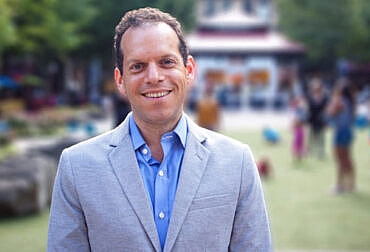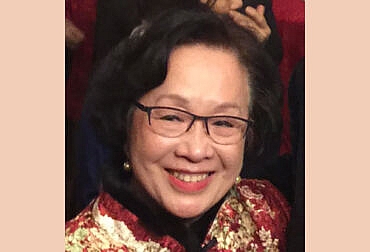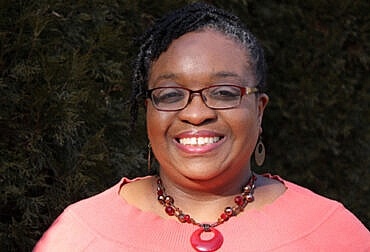Nagender Madavaram discussed with Tom DeGonia about his candidacy for the State’s Attorney. DeGonia and his family have lived in Montgomery County for over twenty-seven years. He is a skilled prosecutor and successful criminal defense attorney. He wants to transform the State’s Attorney’s office, creating transparency, accountability, and equity. DeGonia is the former president of the Bar Association of Montgomery County, where he led the creation of their Racial Justice Council. He was Assistant to State’s Attorney and Special Prosecutor. He has been in private practice for the last 15 years. Tom DeGonia is challenging incumbent, State’s Attorney John McCarthy in the Democratic primary on June 28, 2022.
Nagender Madavaram: Thanks for giving me time. How is going on your campaign?
Tom DeGonia: I think things are going very well. We are reaching more and more people in the county and the momentum is really building for the campaign. You know we’re about four months out, I feel very good about it. We’re making contact with the communities and getting warm reception.
Nagender Madavaram: That’s good. There is more than one attorney office in Montgomery County. One is County’s Attorney Office and another one is State’s Attorney Office. Exactly what your office does? What is your agenda and how you are going to make a difference in Montgomery County?
Tom DeGonia: It’s a great question. You know the State’s Attorney is elected at large by everyone in the county and he is the chief law enforcement officer for Montgomery County. Every county has one as well as the City of Baltimore. State’s Attorney really sets the prosecution priorities for law enforcement. What cases go forward and what cases get prosecuted? What sentences we ask for, and how do we keep our communities safe? It’s a constitutionally created office. You work with the County Council, you work with the police, you work with the County Executive, but you don’t answer directly to them. This is an office that answers directly to the people of the county.
State’s Attorney and the County Police:
Nagender Madavaram: What is the relationship between State’s Attorney and the County Police?
Tom DeGonia: The State’s Attorney is, if you think about television shows and you see the prosecutor in the courtroom, that’s this office and it’s responsible for prosecuting all felony cases, all civil or all misdemeanor cases. We don’t have a civil responsibility and so we work with the police and make arrests. The State’s Attorney presents those cases to the grand jury and pursues those cases in court. So, we work with the police but they don’t necessarily report to us. We have an oversight role, but not a direct reporting. They report to the Chief of Police and the Chief of Police reports to the County Executive.
Violence in Montgomery County:
Nagender Madavaram: There’s a lot of discussion about growing violence in Montgomery County. Various reasons may be causing the violence. How you are concerned about this violence and how can you handle it?
Tom DeGonia: Well, there are a couple of very good points. You are right, homicides have been on the rise last year alone, Montgomery County had more homicides than we’ve ever had since the police have been keeping records. Carjackings have spiked, both regular firearms as well as what are commonly referred to as ghost guns or privately manufactured guns that can be ordered online are increased. One of the things that has not happened in the current administration is we don’t have a comprehensive approach to gun violence, and that’s one area where I’ve come up with a program called Firearm Safety Taskforce. That would be led by a prosecutor or multiple prosecutors in my office working with local law enforcement, state law enforcement, and the federal law enforcement in order to address in a focused way and prioritize getting guns out of our streets. That means, work with our schools, nonprofits, communities in order to address gun violence. Law enforcement can help to identify a handful of people who are responsible for getting those guns on the street and have aggressive approach with those people who are getting the guns onto the streets. Your crime is very localized and the problems in Bethesda may not be the same problems that we have in Burtonsville or Germantown or Gaithersburg. So, what I’m going to do is to have at least one senior prosecutor in each police district. There are six police districts in the county and they’ll work with the community and the police. They’ll work with advocacy groups, nonprofits and our schools in those particular districts in order to address the problems that are present in that Community. So, it’s a much more community-based approach than we currently have.
Reforms in Juvenile System:
Nagender Madavaram: Kids are being put in the jails for trivial crimes. What reforms you are proposing to juvenile system?
Tom DeGonia: We have to acknowledge that our juvenile justice system disproportionately impacts children of color and over the last six years, 88% of the children who were involved in the juvenile justice system were children of color. Ninety nine percent of the children who were charged as adults with children are people of color. So, we have to acknowledge that there is a disproportionate impact in our communities of color and acknowledge that and address it. We address it by finding ways to keep kids out of the system. That means having clear lines drawn with our school system so that we are looking at more restorative justice practices in the school. If it’s a school discipline issue, keep them there don’t use the juvenile system to enforce school discipline. Only use it when we have to use it.
The Department of Juvenile Services is a state agency and they provide resources and they haven’t been providing the level of resources that we need. We can’t just rely on the Department of Juvenile Services to provide those resources. As the State’s Attorney, I’m going to the community, find the resources with our churches, faith-based organizations or other nonprofits to connect kids with the resources that they need in order to succeed. I don’t want someone just waiting to graduate to become an adult criminal. I want the child to get the resources they need. That’s going to address their drug or alcohol or behavioral issues. We’re also going to pilot a Restorative Justice Program that is where it brings together appropriate cases, the victim of a crime and the person who committed the crime because children have a greater capacity to change their behavior and learn. I want them to change their behavior and learn when they’re in the juvenile system as opposed to waiting for that to become an adult problem. So, let’s deal with that in a constructive way. That’s really where we’re going to start to see the change in the number of people who are coming into the adult system. So, we’re going to start at the beginning and really break that school to prison pipeline and that’s going to require a lot of effort, but it’s got to be under the leadership of the chief law enforcement officer, the State’s Attorney.
Nagender Madavaram: It is very sad to see that more children of color are in juvenile system disproportion to their percentage. People of color are not happy about the justice system which is dealing same crime with different yardsticks. Having marijuana or street drug is a punishable crime but opioid problem is medical issue. Is it not strange?
Tom DeGonia: Well, it’s certainly putting a priority on getting someone to help, whether they’re an adult or a juvenile. If they have a drug or alcohol problem, or an oftentimes a mental health problem, connect them with those resources. Incarceration doesn’t really solve the problem. It only compounds it. Whether it’s a drug issue or a mental health issue or an alcohol issue it’s a matter of making sure that we are getting those resources to the people who need them except for the cases where someone has been violent. There has to be some measure of safety in that and you have to look at that sentence that’s appropriate to address that crime. Every sentence needs to be structured in a way that it really, truly makes us safer. If you lock someone up for five years and don’t give them any treatment, does that really make us safer? Because the person is going to come out of incarceration with the same problem that they had before going in. So, we want to have accountability. Does helping someone to address an opioid addiction make us safer? Absolutely, it makes us safer. It’s really thinking about things differently, not just as a punishment but as a safety factor.
Diversity in State’s Attorney Office:
Nagender Madavaram: There is an Equity Officer in Montgomery County to look into policies of the County from equity perspective. You’re also saying that increasing diversity in the State’s Attorney Office. What do you mean?
Tom DeGonia: Well, I mean that it’s important for people to keep in mind prosecutors make decisions about that impact people’s lives every day, and they make a decision about what charge they’re going to pursue it. Make a decision about what type of jail sentence they’re going to recommend. We have a very diverse county. We have people from over 115 different nations who live here. Our office reflects the Community that we serve but current office doesn’t. You don’t have anyone who’s in charge of a major charging unit in that office who is a person of color, and that’s critically important because everyone has a different experience. We better connect with the communities that we serve and make decisions that reflect the values of our community.
Transparency in the State’s Attorney office:
Nagender Madavaram: You mentioned about the transparency in the State’s Attorney office. What kind of transparency you are proposing?
Tom DeGonia: Transparency really is the foundation of trust. If the community knows what’s going on, they know the decisions that are being made. It’s going to increase trust in the criminal justice system. Every case that’s resolved in Circuit Court there is information that is put out about who was prosecuted. What were the decisions that were made? What was the sentence that they received? I want that information to be made public so that the public can go onto the website and see. How many robbery cases were prosecuted? What sentence that the State’s Attorney asked for? So, that’s external transparency as far as policies are concerned. What are the policies of the State’s Attorney office? Here’s what I’m going to prosecute? Here’s what I’m not going to prosecute so that people can hold the office accountable. I think that is a huge thing in accountability and transparency. It increases trust. The other aspect is making sure that you’re being accessible. Is the office answering questions about crime trends about how are we working with the police? How are we working with the community? So, that’s when we’re talking about transparency. It’s not a secret, it’s public record about what goes on in the courthouse, and the public should be able to access that information.
Prosecutors form Local Communities:
Nagender Madavaram: Montgomery County is a minority majority County. Usually, immigrants don’t come forward to report even though they are suffering. They think that they will be sent to their homeland if they complain against government official. Now you are taking a different approach that you wanted to recruit prosecutors from diversified communities.
Tom DeGonia: Correct, I think it’s important because members of our immigrant communities are the people who are victimized. They are the victims of crime. They are afraid of coming forward. Maybe they feared about the police in their country of origin and there is a cultural issue to overcome. There’s a lack of trust. If they see the prosecutor from their community who’s making the decision, they feel comfortable in coming forward and report the incidents. Oftentimes crimes go unreported from members of our immigrant communities. Actually, if you have a prosecutor who has a connection with the community then it’s easier to connect with someone in my office.
Nagender Madavaram: We have huge immigrant community from various countries.
How many attorneys you can have in your office?
Tom DeGonia: We’ve about 170 employees in the office. We have also got about 70 prosecutors. At one point, it was the largest law firm in in the county. We have a District Court in Silver Spring and in Rockville. Those courts deal with most misdemeanor crimes, serious traffic offenses, DUI’s hit and run accidents and misdemeanor criminal cases. We have the Circuit Court, which deals with jury trials, grand jury investigations those are the cases that are dealing with major theft, fraud, murders, rapes and child abuse type cases. It’s very difficult for a victim sometimes to come forward, especially in a case that has impacted them.
Mental Health:
Nagender Madavaram: Mental health is biggest problem. Individuals with mental health problems are facing unfriendliness from the administration. Without proper evaluation, individuals are being admitted into jail like facilities. If any individual enters into these facilities, then there is no hope for freedom. How the State’s Attorney Office deal with these problems?
Tom DeGonia: Well, if the person has been charged with a crime or criminal offence, say they get into a fight or they assault someone and they’re charged with a criminal assault. That is something that would come into our office. My office would be making the recommendation should this person go to a jail or a mental health facility? Should this person be prosecuted at all, or not prosecuted because of the mental health issue? If individual is incompetent for trial but too much of a danger to themselves or others should be detained. That’s the kind of equivalent of Maryland insanity. There are many more people who can benefit from mental health resources without having to come into the criminal justice system.
SROs in MCPS:
Nagender Madavaram: What is your stand on SROs in MCPS schools?
Tom DeGonia: Well, I don’t believe that moving backwards is the way to solve problems. I think moving forward is the way we solve problems and the school community. The MCPS Superintendent has said that we’re not going to go back to the SRO program. What we have to do is come up with better ways to keep our community safe and community engagement officers is the model. I believe that engagement at the Community level is important. That’s really how I’m structuring my office. I think it’s also important to have police officers engaged. We’re not going to become a prison state. I was actually on a call just a couple of days ago with a forum on mental health. Students want more mental health support personnel in schools and fewer police officers. Police need to have an understanding of what’s going on in the school. They need to be able to respond in the case of an emergency. We had a shooting at Magruder High School and the police responded very quickly. They knew the layout of the school. They knew that the people they were able to respond without having a physical presence inside the school. I think that’s our place of learning and we have to keep it safe. So, we’re going to be moving forward with the decisions that the County Council and the County Executive are going to make. I’ve supported community-based approach to this problem that means we listen to what students and educators say. We listen to what police officers say about safety in a way that we all work together as opposed to just having one group say. We’ve got to solve this together.
Nagender Madavaram: Nice to talk with you. What do you want to say concluding remarks?
Tom DeGonia: Well, I certainly appreciate the opportunity and to have engaged in this conversation. You know to understand what this office does and the decision making that goes in every day. We need to understand that we’re not the same county we were 20 years ago and that we have to adapt, adopt and respond in new and better ways. We can’t keep doing things the same way what we’ve been doing for the last 20 plus years. Expect outcomes that better serve the community that we live in. That’s why I’m running and hopefully I can count on the support of a lot of people in June at this primary.











